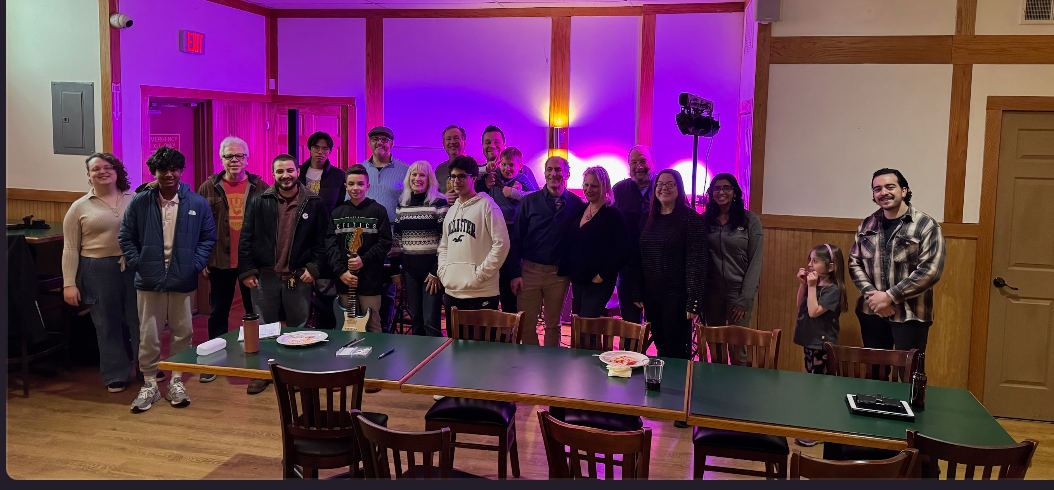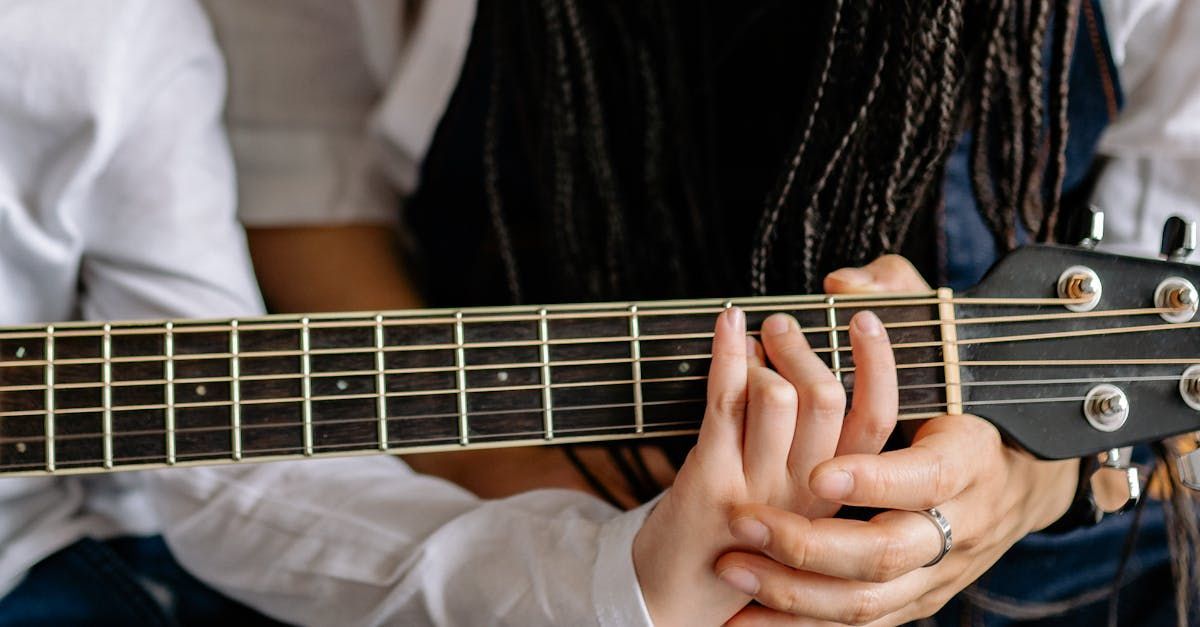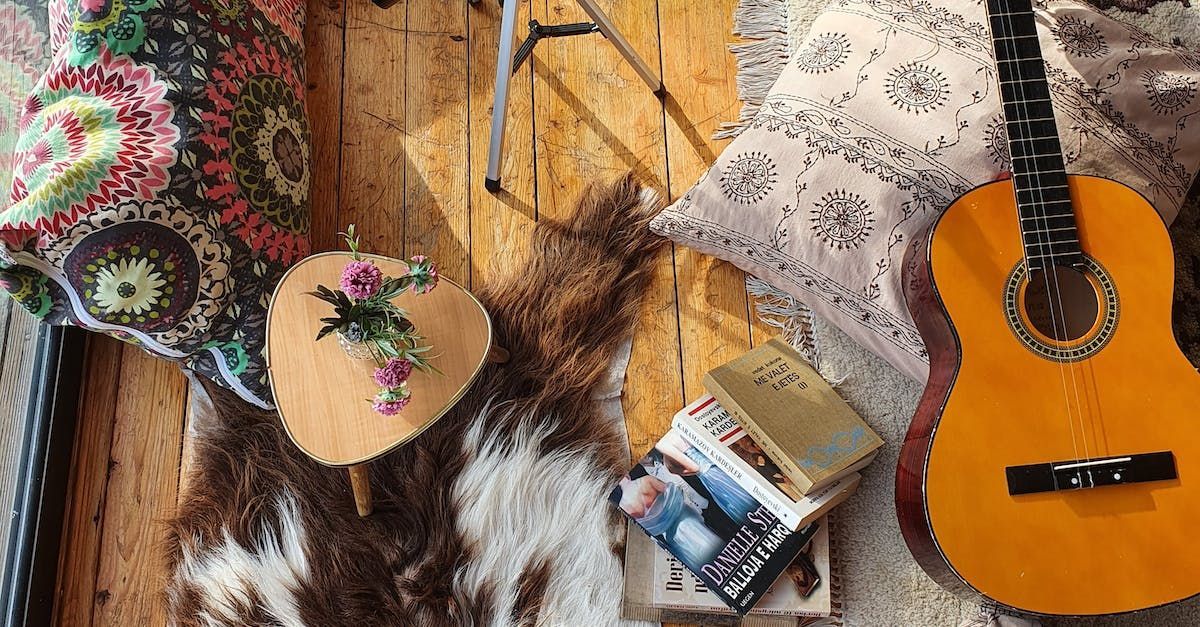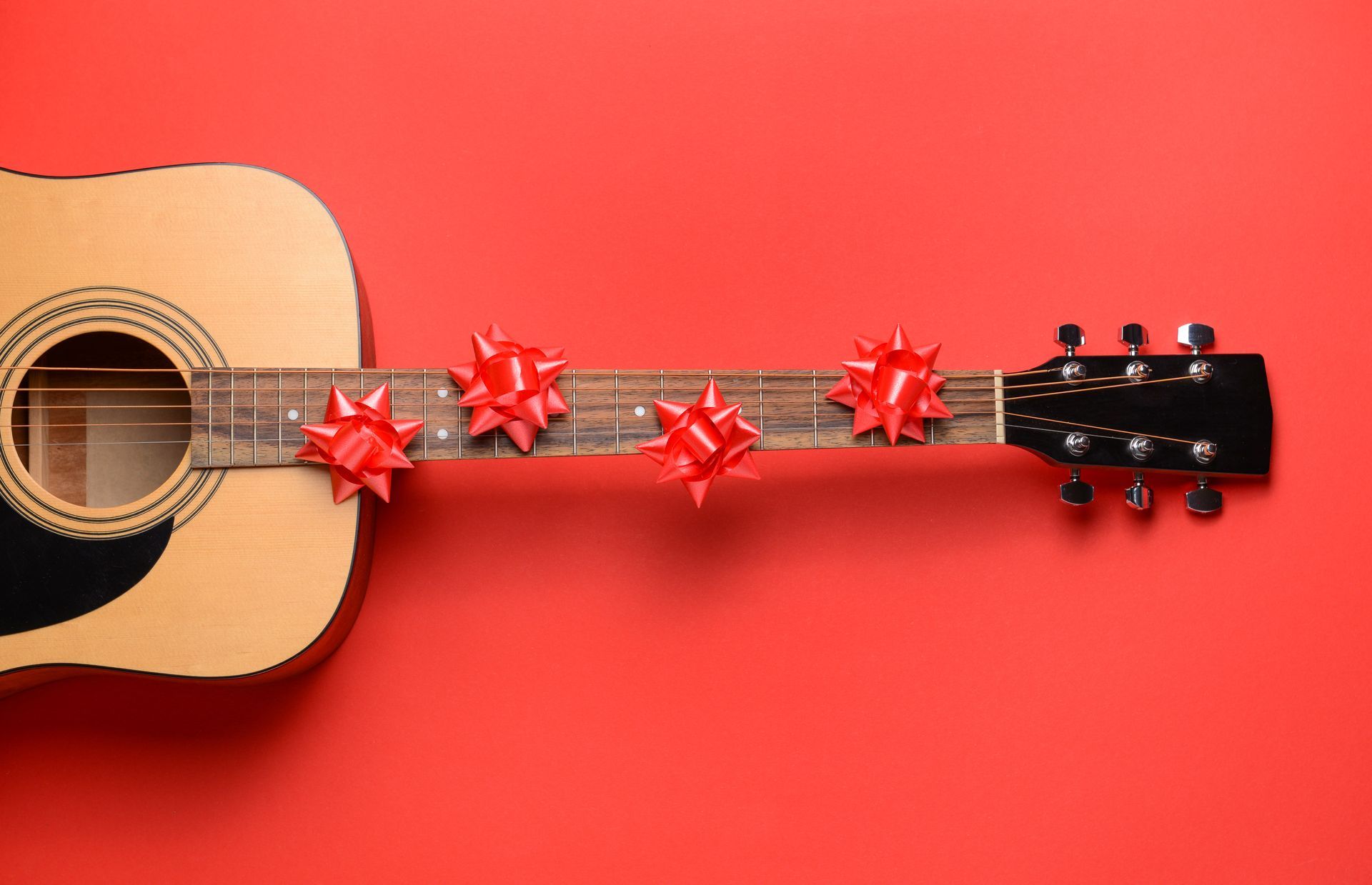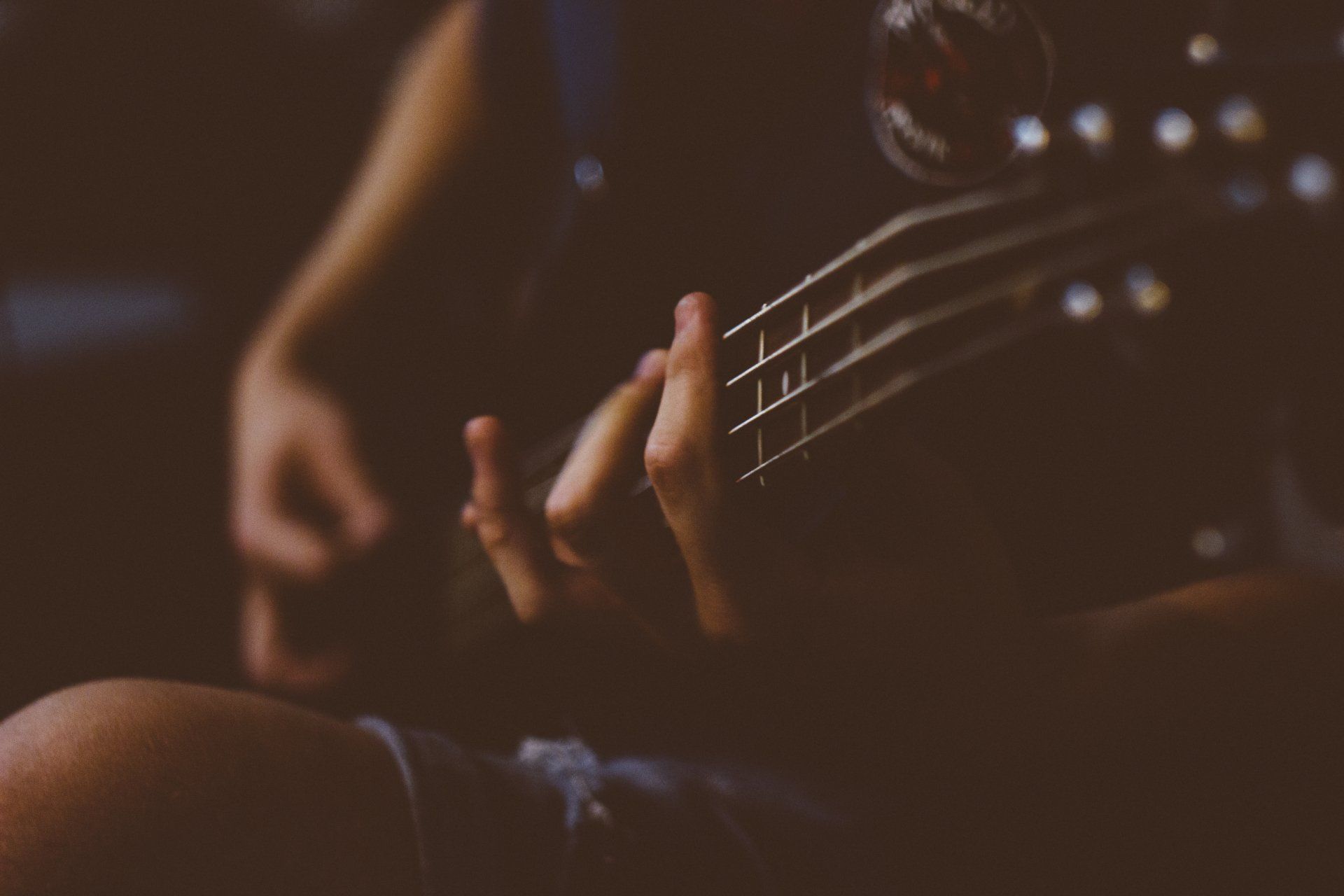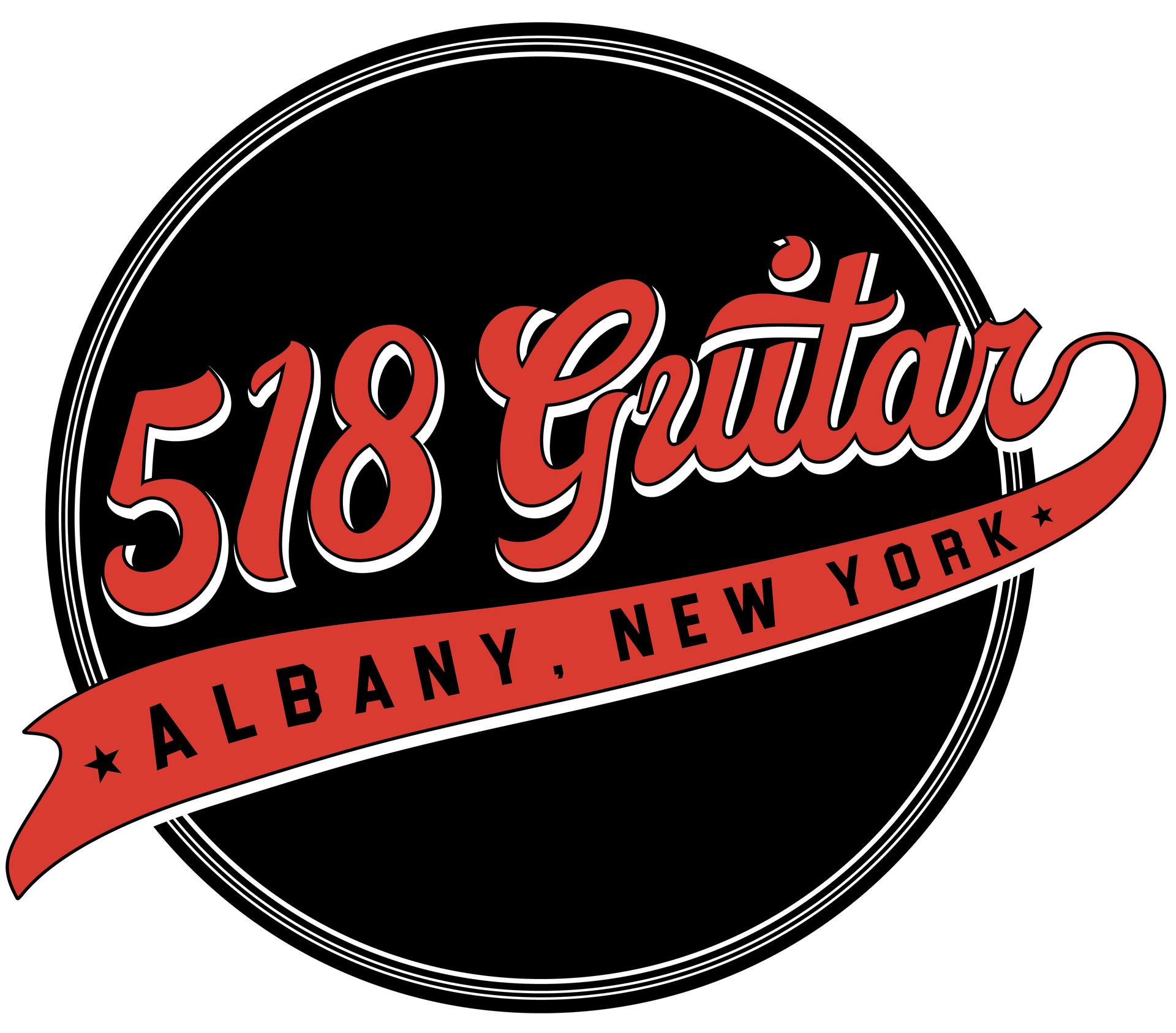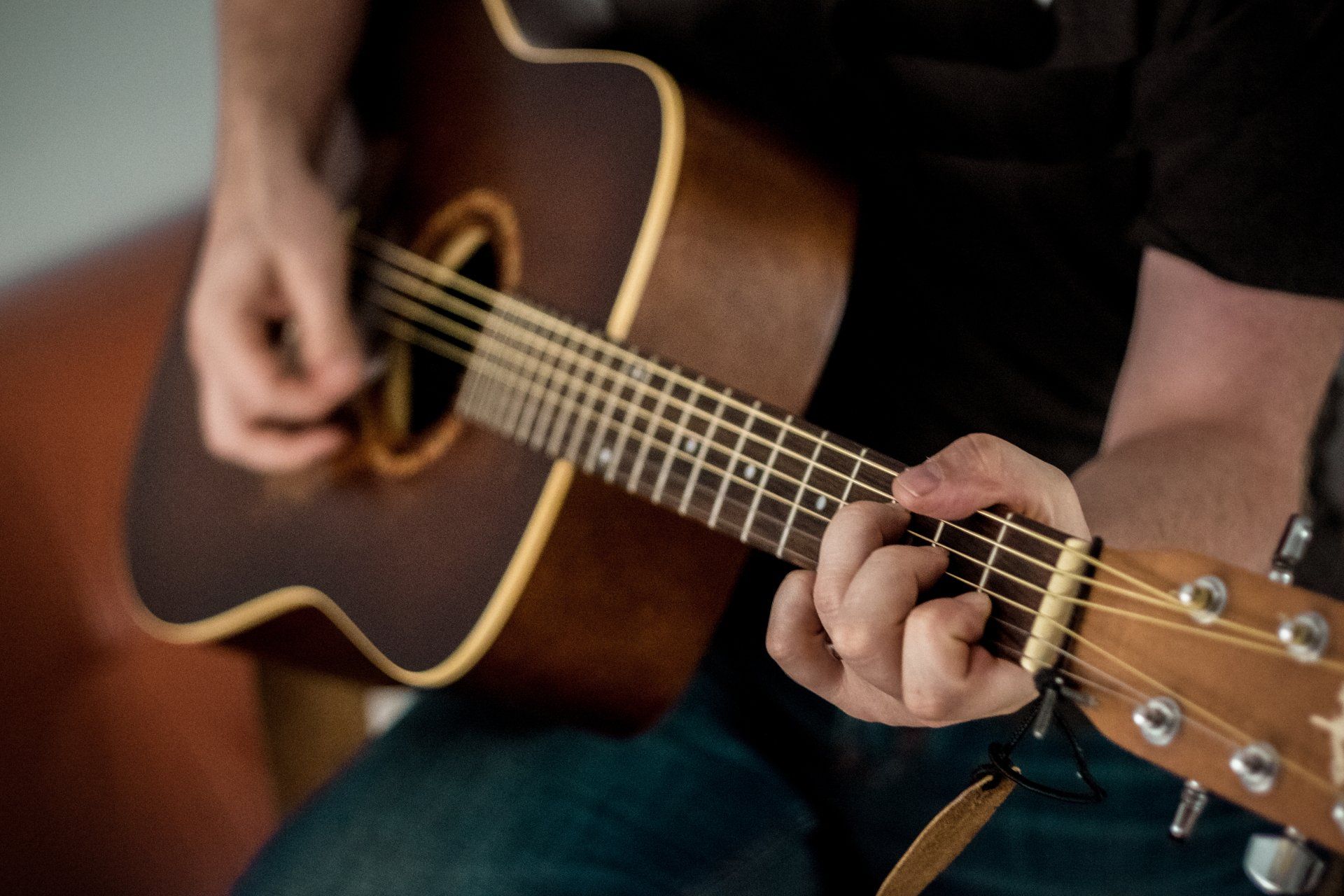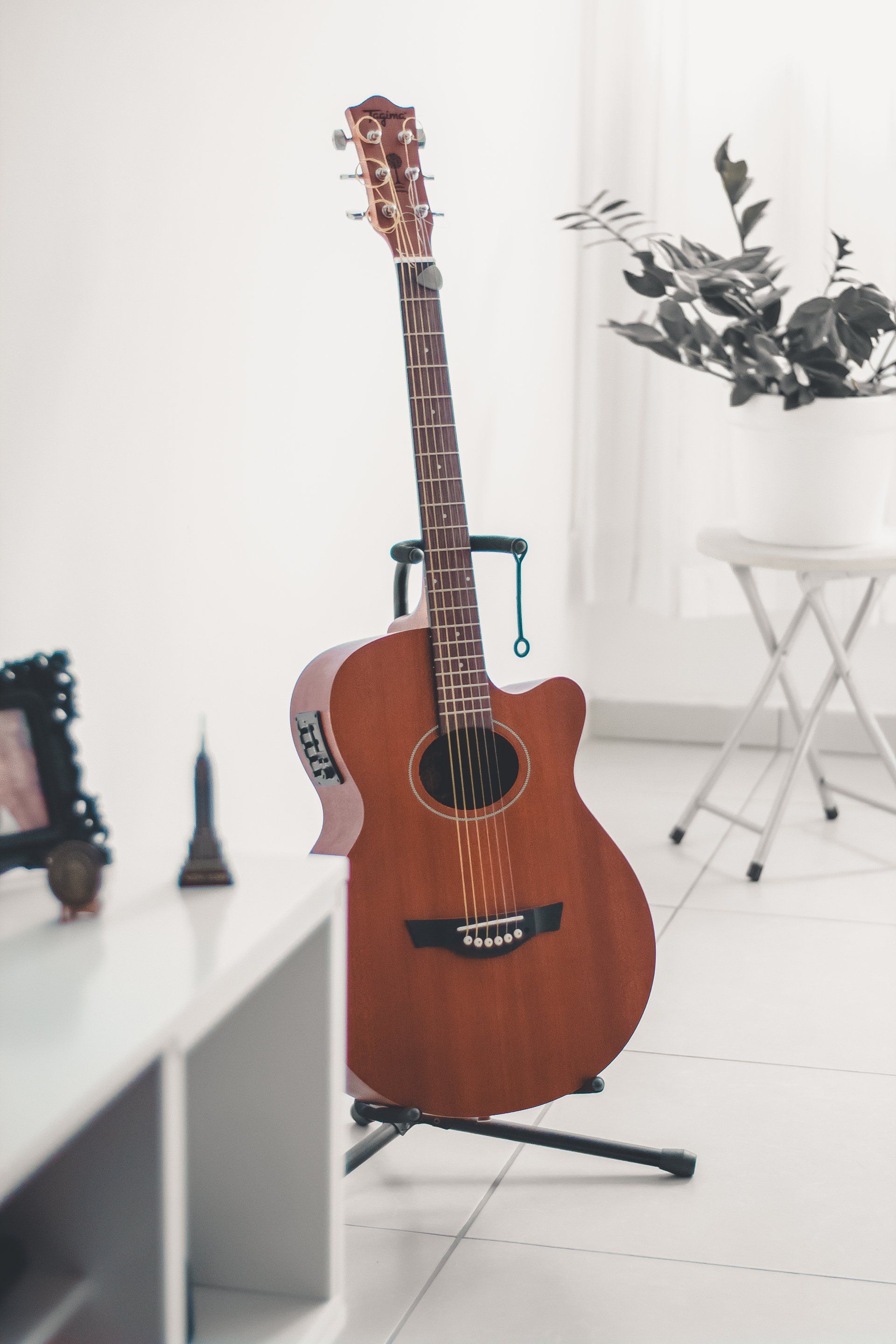Your First Guitar Lesson - How to Prep and What to Expect
Your Guitar Lesson - How to Prepare and What to Expect
Today we are going to discuss how to prepare for your first guitar lesson. Actually, these are basics to make any lesson go more smoothly and meaningful - your first lesson, or your hundredth guitar lesson!
We'll address some of the common concerns and questions a budding (or continuing) guitarist may have. Whether you are starting anew or continuing a long journey of learning, we will go over some ideas common to all one-on-one lessons. Preparation for a successful lesson often leads to just that - a meaningful exchange with a qualified instructor who can assist you.

Before your Lesson
First, you should have emailed, texted, or spoken with your new instructor to schedule the lesson. It is important during this exchange to discuss your learning goals, and to offer the instructor some information about you. Tell the teacher as much or as little as you'd like.
Here are some questions to get you started. I suggest thinking about these a day or two before your lesson.
None of these points are super-essential, and can always be addressed in-person. However - the more you offer ahead of the time, the better the lesson will be.
- Do you own a guitar? If yes, what kind (acoustic steel string; acoustic nylon string; and electric? If no, does the teacher/studio offer a rental instrument)?
- How long you have been playing? If you are a total beginner, then let them know if you've even held the guitar, or tried to play to some notes or even chords on it.
- Do you, or have you, played other instruments?
- What resources you have used? Books, videos, youtube channels, etc.
- How do you learn best? Some of us are visual learners. Some of us are verbal.
- What are your goals? Some students want to play for the sheer fun of it. Some want to write music and record. Some want to jam, form a band, or even go to the local open mic night. Whatever your ultimate dream is - inform your instructor up front. I've had students who want to play just to relax, meditate, or just to slice out some time away from the distractions of our fast-paced world.
- What style do you most want to play? What music inspires you?
- What drew you to the guitar in particular?
Ask your teacher what you should bring to the first lesson. often, a teacher will ask you to bring a notebook, some blank music paper, and maybe a particular book to purchase.
Being able to answer even a few of the above questions will be very helpful for both the student and the teacher, and ensure you will start off on the right foot. Knowledge is power, especially when it comes to a musical journey.
Finally, if you are not a complete stranger to the guitar, ask your new teacher if there is anything you should be prepared to play or demonstrate at the first lesson. They may refer you to some learning materials to see how well you can pick up the basics ahead of time.
At the very least, be sure to bring the bare basics: your guitar, a guitar pick, and the desire to learn!
During your Lesson
What should you expect during your first lesson?
Well, first things first: The lesson is supposed to start at the appointed time. Please arrive to the lesson five to ten minutes early. Often times, students lose a lot time due to unpacking.
It can take anywhere from five to fifteen (!) minutes to park, get in the door, put your case down, unzip/unlatch it, take your guitar out, take your books out, take your picks and tuner out, zip/latch the case back up, enter the lesson room, sit down and place your learning materials on the stand.
It is not uncommon for a thirty minute lesson to turn into a fifteen minute lesson after all this occurs, especially after the exchange of pleasantries and instrument tuning.
When the lesson kicks off, you can expect to be in a room with two chairs and a music stand. The teacher will want you seated in such a way that they will be able to clearly see your left and right hand. The teacher will direct you on which seat to take.
Next will come a review of your goals and skills. The first lesson is also usually an opportunity to get to know the student a little. Many teachers offer a discounted first lesson for this reason. Some teachers/studios require a one-hour minimum for a first lesson.
If you are a sheer beginner, the first lesson is usually dedicated to holding the guitar, holding the pick, and setting up great left and right hand technique. Form and coordination come first. Then ability will flow.
The teacher should be inquisitive, curious, and ask you questions. The teacher may take notes.
Many instructors often make the first lesson about themselves - be cautious of this! The focus should be on YOU - the learner - and your guitar dream...not the teacher's goals, accomplishments and abilities.
Sometimes students will ask the teacher about themselves; that's a good idea if there is a particular skill set you are looking for (for example - a teacher who performs classical, or jazz...or a teacher who is a regular, gigging rock/blues musician with a band, and so on).
At this point, you may be half-way into your lesson time. That's ok - it's important to lay out your goals and ideas for your teacher to hear and acknowledge.
Next, you can expect the teacher to ask you play a recent song you've been working, a chord, or even a scale. If you know absolutely nothing on the guitar, your instructor will start showing you things to play, and ask you to copy them. They are trying to get a baseline about how you learn, reframe, and reflect new things.
Finally, the teacher will stop about five minutes before the lesson is over to write these new ideas down in your notebook. Your instructor will advise you on what to practice. If your instructor does not outline what you should be practicing, ask them! Be sure not to leave your lesson empty-handed!
Be sure that once you get home, grab your guitar and sit down to practice, you will have a clear recall of what to practice.
After your First Lesson
Celebrate after the first lesson. Tie an activity to an activity. What makes you happy? Do something that gives your brain a break that you enjoy. Get a cup of tea or coffee on the way home. Tell a friend or family member. Describing your lesson experience to someone makes it real. It helps to keep you accountable. And, it helps your memory.
Plan your practice for the week. Mark down when you will practice, and for how long. Yes, you will have to schedule your practice times. If not, "life gets in the way". Open your digital (or paper!) calendar and book time with your guitar. Now it's up to you to make your dreams a reality.
- An effective practice regimen is 15-20 focused minutes a day or every other day. Short, regular sessions are far, far better than "marathon" practice sessions once or twice a week.
Go easy on yourself. Learners tend to be so hard on themselves. Remember, your brain and body are grappling with all these new concepts. You are carving new neural pathways. Whether you are a first time learner or not, you should feel challenged.
Stop, breathe, and write down what may be frustrating you during practice. Record it in your guitar notebook. Your instructor is not there with you, and is not a psychic (though a qualified teacher will have the ability to address concerns just by watching and listening to your progress). Bring these concerns to your next lesson so, together, your teacher can ally with you and strategize. This forms a momentum of success. You will eliminate weaknesses and learn faster the longer you take lessons.
Finally...
Happy practicing, and (drum roll...!) let me be the first to congratulate you on this most important first step. Welcome to your new life as a guitarist!
